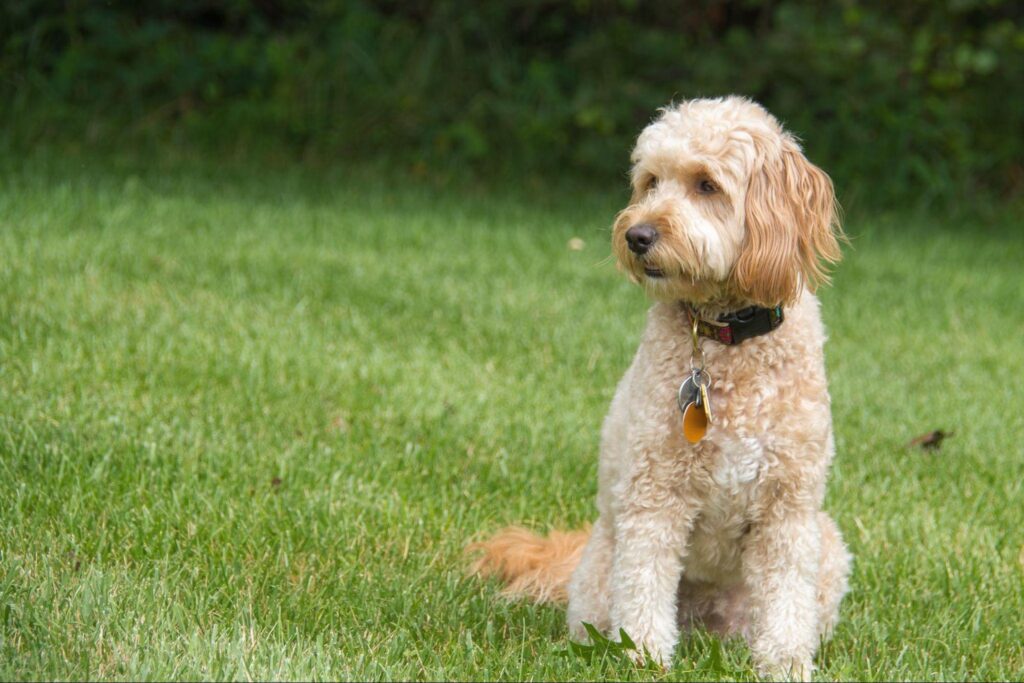Mini goldendoodles are some of the cutest dogs around and the best of both worlds between a poodle and a golden retriever. While the standard goldendoodle is the most common mix you’ll find, in recent years miniature goldendoodles started to pop up around the world and the breed continues to grow in popularity.
What makes these dogs great is their temperament, lack of intense grooming needs, great health, and intelligence. Ultimately, you get the best traits of most medium-sized dogs in a compact little canine companion that’s ideal for homes of all sizes.
While mini is in the name, you’re likely still wondering – what’s a mini goldendoodle’s full size? And if so, you’re in the right place. Read on to learn more about this breed’s full-grown size.
What Is a Mini Goldendoodle?
Before we dive right into how big these dogs get, it’s important to know and understand what they are. Unlike some pure breeds, mini goldendoodles are a mix between poodles and golden retrievers. While they started as standard goldendoodles, a mix between standard poodles and golden retrievers, mini goldendoodles are a mix between miniature poodles and golden retrievers.
The result is a smaller dog that shares many of the same personality traits as their larger counterparts. You’ll find that mini goldendoodles are loyal, reserved, calm, caring, and even affectionate with their human companions.
What’s a Mini Goldendoodle’s Full-Grown Size?
A mini goldendoodle’s full-grown size depends on several factors like their gender, and genetic history. You can expect male mini goldendoodles to reach around 25 to 35 pounds and stand at around 15-17 inches at the shoulder.

On the other hand, female goldendoodles tend to reach 20 to 30 pounds and stand at around 13-17 inches at the shoulder. As you can see, there is some variation in size between male and female mini goldendoodles, but not by much.
It’s also important to note that some health conditions can impact their size.
Factors that Impact a Mini Goldendoodle’s Full-Grown Size
Several factors will influence how big or small a mini goldendoodle will grow to be. Some of these factors are in your control, like diet and exercise, while others aren’t, like health issues and genetics. Learn more about each of these factors below.
Diet
One of the biggest influences on the health of your mini goldendoodle is their diet. You need to always feed them the best food possible, like one of these breed-specific picks, to ensure that they’re getting the necessary amount of protein, fat, and carbohydrates.
You’ll also need to change their diet according to their exercise level, age, and health issues. For example, puppies should eat more food than older dogs that tend to grow sideways rather than tall – if you catch our meaning. Conditions like hyperthyroidism will also impact their diet and nutrition needs, so speak with a vet about the best diet in these cases.
Health Conditions
Some health conditions will impact your mini goldendoodle’s ability to grow. For example, hip dysplasia, luxating patella, and other joint, bone, or even gut health problems can impact growth.

Conditions like hypothyroidism can also alter how active or inactive your dog is, which can result in excessive weight gain that impacts a mini goldendoodle’s full-grown size, but not in a good way.
Genetics
Last but not least, genetics will influence the size of your mini goldendoodle. Depending on the parents, the golden retriever, and poodle used to create the mini goldendoodle, their size may vary. You’ll have to inquire about this from the shelter where you adopt the mini goldendoodle or from the breeder you purchase them from.
Be Prepared for a Full Grown Mini Goldendoodle
The last thing you want is to be surprised when you see the size of a mini goldendoodle. While miniature dogs tend to be smaller than their standard counterparts, that doesn’t always mean tiny.
In fact, mini goldendoodles can be about as heavy and tall as some of the smaller medium-sized dogs out there. Therefore, this isn’t your average toy or teacup breed.
Still, mini goldendoodles rarely weigh more than 40 pounds and they often won’t be taller than 18 inches at the shoulder. This makes them a great fit for all homes, even smaller apartments.
